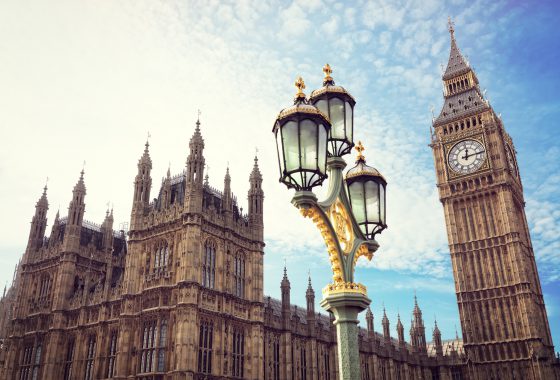The House of Lords will debate new legislation concerning the regulation of physician associates (PAs) in its main chamber, in a move welcomed by doctor leaders.
The statutory instrument (SI) which will allow the GMC to regulate PAs received approval by the House of Commons on 22 January after only being debated by the delegated legislation committee.
But the order will now go before the full chamber of the House of Lords, ‘on the ground that it is politically or legally important or gives rise to issues of public policy likely to be of interest to the House’.
The Anaesthesia Associates and Physician Associates Order 2024 will establish the GMC as the statutory regulator for AAs and PAs, meaning they set out the standards for their practice, education and training and operate fitness-to-practice procedures.
Both the Doctors’ Association UK and the BMA had complained about the lack of debate in Parliament before the SI was approved and the DAUK said it was considering a legal challenge. The BMA took out adverts to bring attention to the low-key parliamentary process applied.
When it was debated by MPs on the legislation committee, some questioned the Government’s failure to address concerns raised by ‘key stakeholders’ regarding patient safety, but a heath minister stressed PAs will ‘not replace’ doctors.
Doctor representatives are concerned the regulations will create confusion for patients by creating the impression that a PA is a form of doctor.
DAUK co-chair Dr Matt Kneale said: ‘We welcome and are grateful for the intervention, which means this legislation will no longer pass quickly in a small chamber and will have a full debate in the House of Lords.
‘We’ve been saying all along that legislation that will fundamentally change patient care in the NHS to the detriment of the public should be properly debated and scrutinised and not rushed through on the nod.
‘There are so many issues to be discussed around PAs and AAs, but the fundamental one is patient safety and they deserve to know who is treating them.’
A House of Lords motion brought by Baroness Bennett said the order ‘represents a significant constitutional change in regulation of healthcare professionals by omitting parliamentary oversight and approval for regulating AAs and PAs; and fails to address concerns within the medical profession about the supervision and titles of the roles’.
And she said the House of Lords ‘regrets that the draft Anaesthesia Associates and Physician Associates Order 2024 refers to “associates” rather than “assistants”, which would more properly reflect the role, scope and responsibilities of such staff and reduce patient confusion’.
Meanwhile, Baroness Brinton said it ‘regrets that the Government has failed to respond adequately to concerns over provisions in the draft Anaesthesia Associates and Physician Associates Order 2024 about the regulation of physician associates and anaesthesia associates by the General Medical Council instead of another regulator’.
She also said it had failed to respond to concerns over ‘the use of these professional titles, which risks confusion for patients over the difference between doctors and other healthcare professionals, with potential implications for patient safety’.
A BMA survey of 19,000 doctors has shown that 72% of doctors do not support the future regulation of PAs and AAs by the GMC. And that 80% of doctors felt that PAs and AAs would be more appropriately names ‘assistants’ than ‘associates’, as they were in the past.
Responding to a written question regarding a PA title change earlier this week (5 February), health minister Andrew Stephenson further cemented the Government’s position on the topic.
He said: ‘It is the responsibility of professionals and their employers to ensure professional titles are used appropriately. As set out in National Institute for Health and Care Excellence guidelines, all healthcare professionals should introduce themselves and explain their role to the patient regardless of their job title, with PAs being no different.’
The BMA has warned the proposed legislation ‘will add further, dangerous confusion’ with patients being left under the impression that they have seen a doctor when they haven’t, and over 10,000 doctors wrote to their MP to urge them to oppose the change.


















READERS' COMMENTS [1]
Please note, only GPs are permitted to add comments to articles
PAs need to stand alone to realise their limits and what risks they should and shouldnt take.They Shouldnt need supervision if they are trained for their roles and stay within their role.